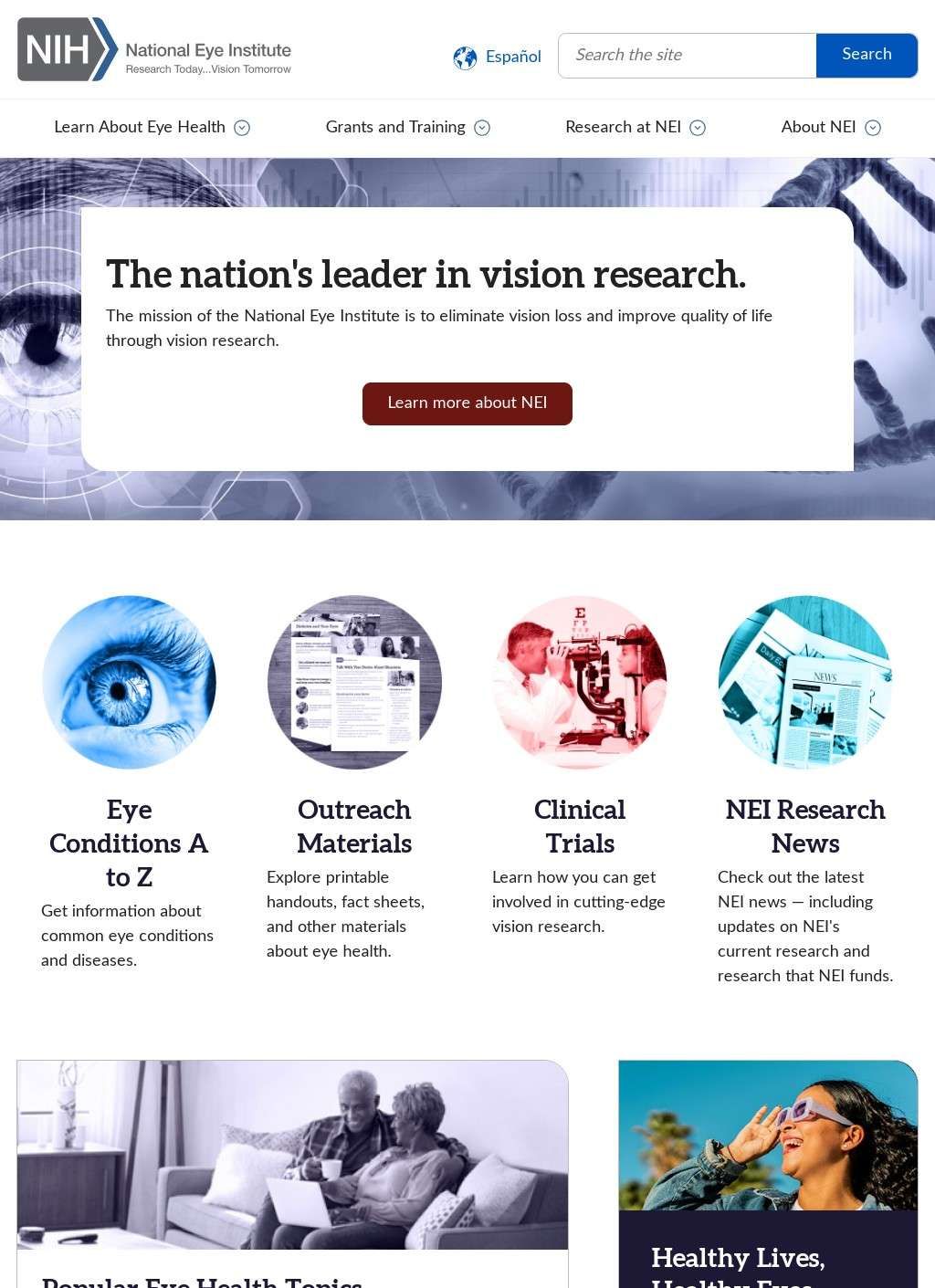The National Eye Institute stands as the cornerstone of federal vision research in the United States, operating under the National Institutes of Health umbrella to advance understanding and treatment of eye diseases and visual disorders. Established by Congress in 1968, NEI coordinates the national research effort to prevent and treat eye diseases and other disorders of the visual system. With an annual budget exceeding $800 million, the institute supports more than 1,500 research and training grants to vision scientists across the country and around the world, fostering innovations that have revolutionized eye surgery techniques and patient outcomes.
NEI's comprehensive research portfolio encompasses every aspect of eye surgery, from developing minimally invasive techniques to pioneering gene therapies and regenerative medicine approaches. The institute's intramural research program, conducted at its Bethesda campus, brings together world-renowned scientists who investigate fundamental mechanisms of vision and translate discoveries into surgical innovations. Recent breakthroughs include the development of artificial retinas for patients with degenerative diseases, novel surgical approaches for pediatric cataracts, and advanced imaging technologies that guide precision surgery. These research initiatives directly impact surgical practice, with NEI-funded studies establishing new gold standards for procedures ranging from corneal transplants to retinal detachment repair.
Clinical trials coordinated through NEI represent the cutting edge of eye surgery advancement, testing revolutionary approaches that may transform patient care. The institute's clinical trials database provides patients and physicians access to studies investigating new surgical devices, techniques, and combination therapies. Current trials explore everything from stem cell transplantation for macular degeneration to robotic-assisted surgery systems that enhance precision beyond human capability. NEI's rigorous trial protocols ensure that new surgical interventions meet the highest safety and efficacy standards before widespread adoption. The institute also supports multicenter trials that generate definitive evidence about optimal surgical timing, technique variations, and long-term outcomes.
Educational resources from NEI serve both healthcare professionals and patients navigating eye surgery decisions. The institute's comprehensive information portal explains various surgical procedures in accessible language, helping patients understand their options and prepare for surgery. Detailed guides cover common procedures like cataract surgery, LASIK, and glaucoma operations, as well as complex interventions for rare conditions. Interactive tools allow patients to assess their risk factors and explore treatment pathways. For surgeons and researchers, NEI provides technical resources, surgical atlases, and best practice guidelines developed through consensus conferences. These materials ensure that surgical advances disseminated through research translate effectively into clinical practice.
NEI's Audacious Goals Initiative exemplifies the institute's forward-thinking approach to transforming eye surgery possibilities. This ambitious program aims to regenerate neurons and neural connections in the eye and visual system, potentially reversing blindness previously considered permanent. Research teams are developing bioengineered tissues, neuroprotective therapies, and cellular reprogramming techniques that could fundamentally change surgical approaches to optic nerve damage and retinal degeneration. The initiative funds high-risk, high-reward projects that push boundaries of current surgical capabilities, including work on optogenetic therapies, neural interfaces, and tissue engineering scaffolds.
International collaboration through NEI extends American surgical innovations globally while bringing international expertise to U.S. research efforts. The institute partners with vision research centers worldwide, facilitating knowledge exchange about surgical techniques adapted to different populations and resource settings. NEI's global health initiatives address surgical capacity building in developing countries, where treatable blindness remains prevalent due to limited access to eye surgery. Training programs, equipment donations, and technical assistance help establish sustainable surgical services in underserved regions. These international connections also enable large-scale epidemiological studies that inform surgical decision-making across diverse populations.
Technology development supported by NEI drives the evolution of surgical tools and techniques used in operating rooms worldwide. The institute funds bioengineering research that produces next-generation surgical devices, from femtosecond lasers that create precise corneal incisions to micro-robotic systems for retinal surgery. Imaging innovations like intraoperative OCT provide real-time visualization during surgery, dramatically improving precision and outcomes. NEI's small business innovation research program helps translate laboratory prototypes into commercial surgical products. This technology pipeline ensures continuous improvement in surgical capabilities, making previously impossible procedures routine and reducing complications through enhanced precision.
For patients and families affected by eye conditions requiring surgery, NEI serves as an authoritative information source and research advocate. The institute's website features comprehensive surgical procedure explanations, recovery guidance, and resources for finding clinical trials. Patient advocacy programs ensure that research priorities reflect community needs and that surgical innovations address real-world challenges faced by people with vision loss. NEI also maintains directories of specialized surgical centers and provides guidance on evaluating surgical options. Contact information includes phone helplines staffed by information specialists who can direct inquiries to appropriate resources, email systems for detailed questions, and mailing addresses for requesting printed materials about specific surgical procedures and research opportunities.
